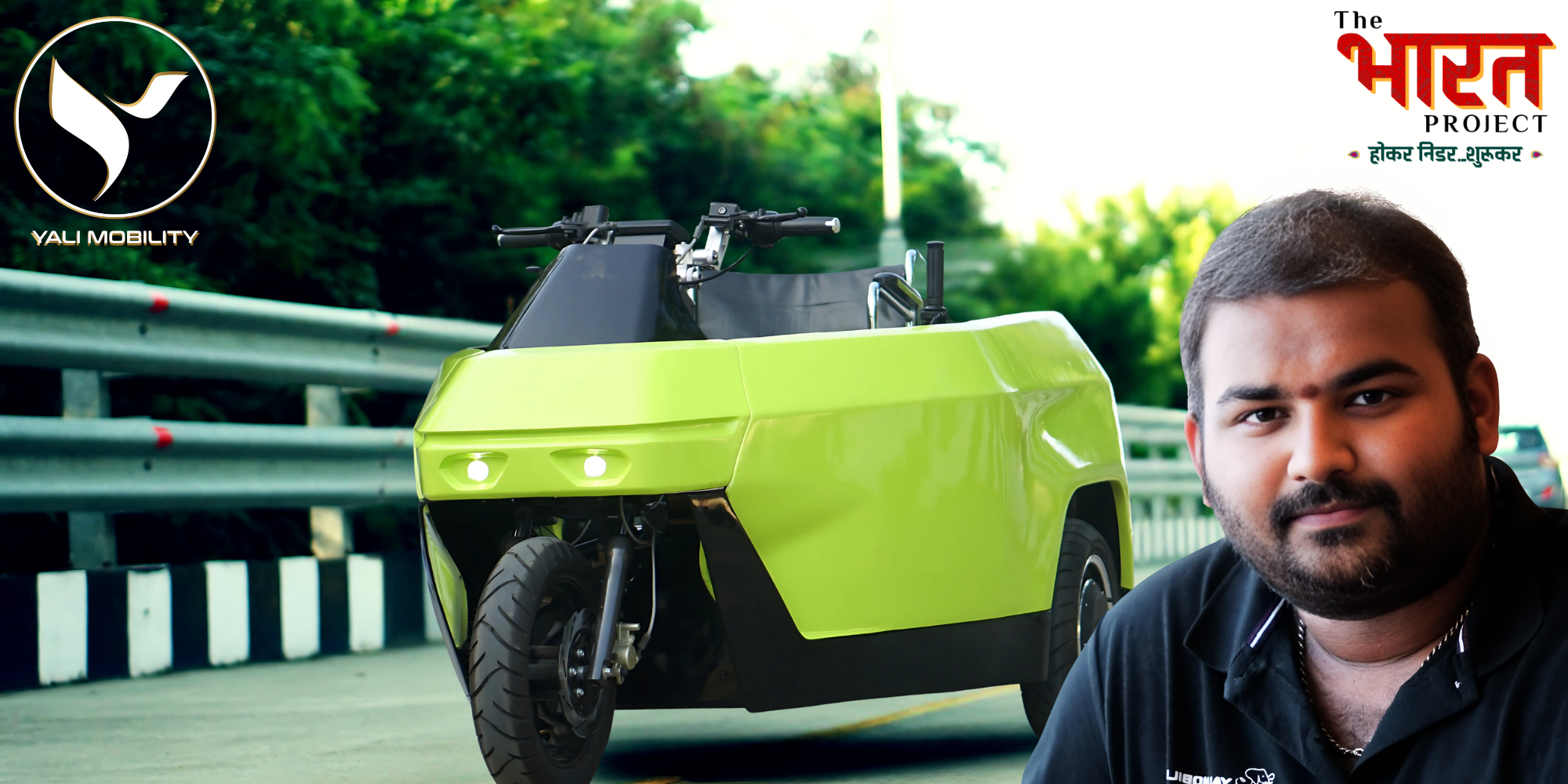By Nucleus_ai
When Sakthivel Thayappahn first saw a Segway in the 2008 film Dasavatharam, he couldn’t afford one, but he could build one. What began as a college project in Tiruvannamalai soon turned into a lifelong mission: to make mobility more inclusive. His creation, a three-wheeled personal mobility vehicle named Oyyari, sparked a journey through startup roles, assistive tech labs, and eventually, the founding of Yali Mobility.
A Vehicle Born from Grassroots Insight
While working at IIT Madras’ CREATE lab, Sakthivel supported assistive mobility projects like DOST and myDrive. Through deep interaction with wheelchair users, one insight stood out: people don’t want retrofits—they want complete, dignified solutions. Thus was born Yali Mobility: an accessible, purpose-built electric vehicle designed for independence.
What Yali Stands For
The name “Yali” symbolises strength and agility—qualities that the startup aspires to reflect through its products and approach. Founded in 2018 and anchored at the IIT Madras Research Park, Yali stands for the confluence of mobility and dignity, innovation and inclusion, and grassroots insight with technological excellence.
The Solution: Purpose-Built, User-Driven EVs
Yali’s flagship product reimagines transport for wheelchair users: a drive-from-wheelchair electric vehicle that requires no transfers, featuring a remotely controlled kneeling platform and retractable ramp, and a patented docking system that secures the wheelchair within seconds.
The vehicle includes an optional pillion seat and is optimised for city commutes with a 100 km range and crash-compliant design. These features make Yali India’s first road-legal, electric vehicle tailored exclusively for wheelchair users.
Market Potential and Growth Plans
India has over 5.5 million wheelchair users, yet adaptive transport solutions remain scarce. Yali Mobility focuses on urban and semi-urban areas, catering especially to working professionals and active elderly individuals.
With a market opportunity estimated at over Rs 1,100 crore, the company aims to deploy more than 50,000 vehicles within the next five years through a multi-pronged approach involving direct sales, CSR-funded implementations, collaborations with NGOs, and licensing agreements with emerging-market EV manufacturers.
Backed by Institutions, Built with Community
Yali is incubated at IIT Madras and supported by the Ministry of Heavy Industries, AIC RAISE, and Forge Accelerator. A Rs 2.2 crore government grant is propelling it toward type approval and TRL-9 certification. Its patented docking system has already attracted licensing interest.
The vehicle has been co-developed with inputs from 100+ wheelchair users, ensuring it reflects lived realities. Early deployments in educational campuses demonstrate strong use-case validation.
The Team Behind the Mission
Sakthivel Thayappahn, Founder & CEO, leads innovation and design, while Pradeep Thangappan, Co-founder & Director, manages operations and CSR rollouts. Together, they guide teams across product engineering, production, and business development, cultivating a workplace culture rooted in purpose and impact.
Competitive Edge in an Underserved Market
Yali faces no direct commercial competitors. Unlike retrofitted cars, scooters, or ride services, it stands out by offering a self-driven, compact, crash-compliant electric vehicle specifically tailored for wheelchair users.
It features affordable pricing, in the range of Rs 2 to Rs 2.2 lakh, and enables seamless ingress, docking, and independent piloting, making it a truly transformative solution for inclusive urban mobility.
Lessons from the Field
Investor scepticism around market size was a hurdle, but lived experiences proved the demand. Transitioning from prototype to production brought regulatory and capital challenges. Still, Yali’s team stayed mission-aligned, learning that scaling impact demands more than innovation—it requires ecosystem coordination.
Yali 3.0 isn’t just transport. It reduces commute stress by 5x, boosts user well-being by 70%, and restores independence. Each vehicle uplifts families, challenges social biases, and advances urban sustainability.
As Sakthivel says, “Startups are a journey, not a race. Be purpose-driven. Let your mission fuel your resilience.”
Looking Ahead
Over the next 18 months, Yali will finalise vehicle certification, launch production of Yali 3.0, conduct an awareness rally from southern India to Delhi, and expand decentralised assembly. In the long term, it aims to license its technology globally and introduce new variants like family scooters and campus EVs.
